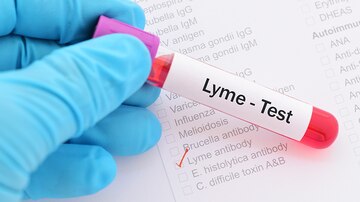Phosphatidylcholine might sound like a complex word, but its role in health is straightforward and essential. This superstar nutrient is gaining recognition as a promising treatment for Lyme disease. So, what exactly is it, and how does it work?
What Is Phosphatidylcholine?
Phosphatidylcholine is a type of phospholipid, a key building block of cell membranes. Think of cell membranes as the protective walls of your body’s cellular “fortresses.” Without strong, healthy membranes, cells can’t function properly, leading to a cascade of health issues.
Found in abundance in the liver and brain, phosphatidylcholine plays a vital role in maintaining cellular integrity and supporting essential bodily functions. For decades, it’s been used in medicine, but its potential to treat Lyme disease is now capturing attention.
Phosphatidylcholine is naturally occurring, but its levels can be depleted by stress, toxins, and chronic illness. Supplementing it can restore cell membrane integrity and optimize cellular processes, making it invaluable for overall health.
Why Is Phosphatidylcholine Important?
Brain Health
Phosphatidylcholine is like a personal trainer for your brain. It’s been linked to improved cognitive function, including memory and focus. For those battling Lyme disease, brain fog and mental fatigue are common issues that this nutrient may help alleviate.
Liver Function
Your liver is the body’s detox powerhouse. Phosphatidylcholine supports liver cell health, helping the liver efficiently process and eliminate toxins—a critical function for individuals with Lyme disease who often experience a heavy toxic burden.
Cell Membrane Health
Think of phosphatidylcholine as the repair crew for your cells. Lyme disease can damage cell membranes, but this compound helps restore their strength and functionality, promoting better overall health.
How Does Phosphatidylcholine Work for Lyme Disease?
Phosphatidylcholine IV therapy has emerged as a complementary treatment for Lyme disease. By targeting damaged cell membranes and boosting the immune system, it helps alleviate symptoms like chronic fatigue, inflammation, and brain fog.
Repairing Damaged Cell Membranes
Lyme disease can ravage your cells, leaving their membranes weakened. Phosphatidylcholine acts as a repair kit, patching up these membranes and restoring proper cellular function.
Reducing Inflammation
Inflammation is a hallmark of Lyme disease, causing joint pain, fatigue, and more. Phosphatidylcholine’s anti-inflammatory properties help calm this response, providing much-needed relief.
Enhancing Immune Function
By supporting liver health and optimizing cell function, phosphatidylcholine indirectly boosts the immune system. A stronger immune response means your body can fight off infections more effectively.
Benefits of Phosphatidylcholine IV Therapy for Lyme Disease
Phosphatidylcholine IV therapy delivers this nutrient directly into the bloodstream, ensuring maximum absorption. Here’s how it can help Lyme disease patients:
| Benefit | Details |
|---|---|
| Reduced inflammation | Phosphatidylcholine has been found to have anti-inflammatory effects that can help reduce pain, swelling, and other symptoms of inflammation associated with Lyme disease. |
| Improved cognitive function | Studies have shown that phosphatidylcholine can improve cognitive function, including memory and attention span, which are often affected by Lyme disease. |
| Increased energy levels | Phosphatidylcholine can help improve mitochondrial function, which plays a key role in energy production. This can help combat the fatigue that is commonly associated with Lyme disease. |
| Improved immune function | Phosphatidylcholine can help boost the immune system by increasing the production of white blood cells and enhancing the body’s ability to fight off infections. |
| Repair of damaged cell membranes | Lyme disease can damage cell membranes, which can lead to a variety of health problems. Phosphatidylcholine can help repair these membranes, restoring cellular function and improving overall health. |
| Support for liver health | Phosphatidylcholine is an important component of liver cell membranes and can help support liver function. This is particularly important for those with Lyme disease, as the condition can cause liver damage and dysfunction. |
The Recommended Dosage for Lyme Disease Treatment
When it comes to phosphatidylcholine IV therapy, one size does not fit all. Dosage depends on your unique needs and the severity of your symptoms. Most protocols recommend starting with a low dose and gradually increasing it to minimize side effects.
Typical Dosage
- 1-3 grams per infusion
- Administered 1-3 times per week
As with every IV Therapy, phosphatidylcholine therapy is tailored to your needs based on medical history, current supplements, and health concerns.
What to Expect During Treatment
Sessions typically last 60-120 minutes, during which the nutrient is infused directly into your bloodstream. While some patients notice immediate benefits, others may need several weeks to experience significant improvement. Patience is key.
Potential Side Effects and Precautions
Like any treatment, phosphatidylcholine IV therapy comes with potential side effects. Fortunately, these are usually mild and temporary:
- Nausea
- Vomiting
- Diarrhea
- Fatigue
Who Should Avoid This Treatment?
- Individuals with severe liver disease or a history of blood clots
- Pregnant or breastfeeding women (safety not established)
Is Phosphatidylcholine Right for You?
If you’re battling Lyme disease and searching for a natural, effective treatment, phosphatidylcholine IV therapy might be worth exploring. By repairing cell membranes, reducing inflammation, and boosting your immune system, it addresses the root causes of many Lyme-related symptoms.
Final Thoughts
Phosphatidylcholine isn’t just a buzzword in the medical world; it’s a lifeline for those grappling with chronic conditions like Lyme disease. From brain health to liver support, its benefits are far-reaching. If you’re ready to reclaim your energy, clarity, and vitality, consider adding this powerful therapy to your treatment arsenal.
- IV Phosphatidylcholine is a delegated substance via a Medical Doctor in Ontario.
- Please contact Dr. Danielle O’Connor ND at Deerfields Clinic for more information and to see if this is the right fit for you.




